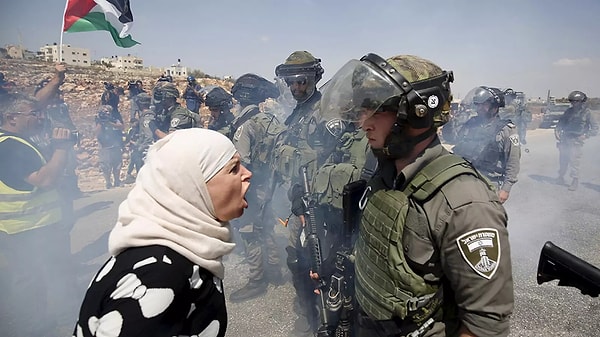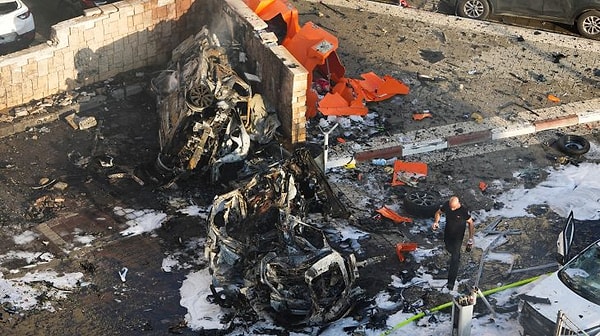Hamas Attacks Israel: Escalation of Israel-Palestine Conflict
The Israel-Palestine conflict has once again erupted into a full-blown crisis, with deadly consequences. On October 7, 2023, Palestinian militants in the Gaza Strip carried out an unprecedented infiltration into southern Israel and fired thousands of rockets into the country. In response to this attack, Israel declared a 'state of readiness for war.' This escalation in violence has left at least 22 people dead and over 250 injured, as reported by Israel's Magen David Adom (MDA) emergency rescue service. The situation has raised alarm bells internationally, as it threatens to plunge the region into further chaos and suffering. In this article, we delve into the recent events, examine the historical context of the Israel-Palestine conflict, and explore the implications of this latest crisis.
The Recent Escalation

The recent escalation began with an early-morning surprise attack by Palestinian militants from Gaza. Around 2,200 rockets were launched into Israel on that fateful Saturday morning. The Israeli military confirmed that armed gunmen infiltrated across the border, launching a ground assault into southern Israel. This attack was claimed by Hamas, the Palestinian militant movement that governs Gaza.
Hamas named this operation 'Al-Aqsa Storm' and announced that they had targeted various Israeli positions, airports, and military facilities with more than 5,000 rockets. They cited the desecration of the Al-Aqsa mosque in Jerusalem, attacks on women, and the ongoing siege of Gaza as reasons for their assault.
Israel responded swiftly, launching strikes against Hamas targets in Gaza and mobilizing thousands of reservists. The Israel Defense Forces (IDF) reported ongoing ground clashes in several locations, with some militants attempting to break into Israeli homes. Israeli Prime Minister Benjamin Netanyahu declared that Israel was 'at war' and called for citizens to stay in their homes or seek shelter in response to the rocket barrage.
Historical Context

Understanding the Israel-Palestine conflict requires examining its deep-rooted historical context. The conflict traces its origins back to the early 20th century when Britain gained control of Palestine after World War I. At that time, Palestine was home to a Jewish minority and an Arab majority. The international community tasked Britain with creating a Jewish homeland in Palestine, which heightened tensions between these two communities.
In the 1920s and 1940s, Jewish immigration to Palestine increased significantly, driven by Jews fleeing persecution in Europe, particularly in the aftermath of the Holocaust. This influx of Jewish immigrants led to increased friction between Jews and Arabs and resistance to British rule.
In 1947, the United Nations voted to divide Palestine into separate Jewish and Arab states, with Jerusalem under international administration. While the Jewish leadership embraced this plan, the Arab side rejected it, leading to its failure. In 1948, British authorities withdrew, and Jewish leaders declared the founding of Israel, resulting in a war between Israel and neighboring Arab countries. This conflict led to the displacement of hundreds of thousands of Palestinians, an event they refer to as Al Nakba or 'The Catastrophe.'
Subsequent years witnessed several skirmishes between Israel and Palestine, some minor and others with catastrophic consequences. In 1987, Hamas, a political group with military capabilities, was launched as a political arm of the Muslim Brotherhood. Both Palestinian uprisings, known as 'intifadas,' significantly affected Israeli-Palestinian relations, with Hamas playing a role in both.
In 2000, the Camp David Summit aimed at reaching a final status agreement between Israel and Palestine ended without resolution, further souring relations between the two nations.
The Endgame

Hamas's recent call for fighters in the West Bank and across the Arab and Islamic worlds to join the battle against Israel adds to the already high tensions in East Jerusalem, Gaza, and the West Bank. Israel and Egypt's tight control over Gaza's borders has led to a humanitarian crisis, with Gazans struggling to access basic necessities like food and water. Palestinians in both Gaza and the West Bank blame Israeli actions, such as the blockade of Gaza, the West Bank barrier's construction, and the destruction of Palestinian homes, for their suffering.
Israel, on the other hand, maintains that it is acting in self-defense, citing the thousands of rockets fired by Hamas into Israeli territory and numerous attacks on Israeli civilians by Palestinian militants.
What do you think? Tell us in the comments!
Keşfet ile ziyaret ettiğin tüm kategorileri tek akışta gör!


Send Comment